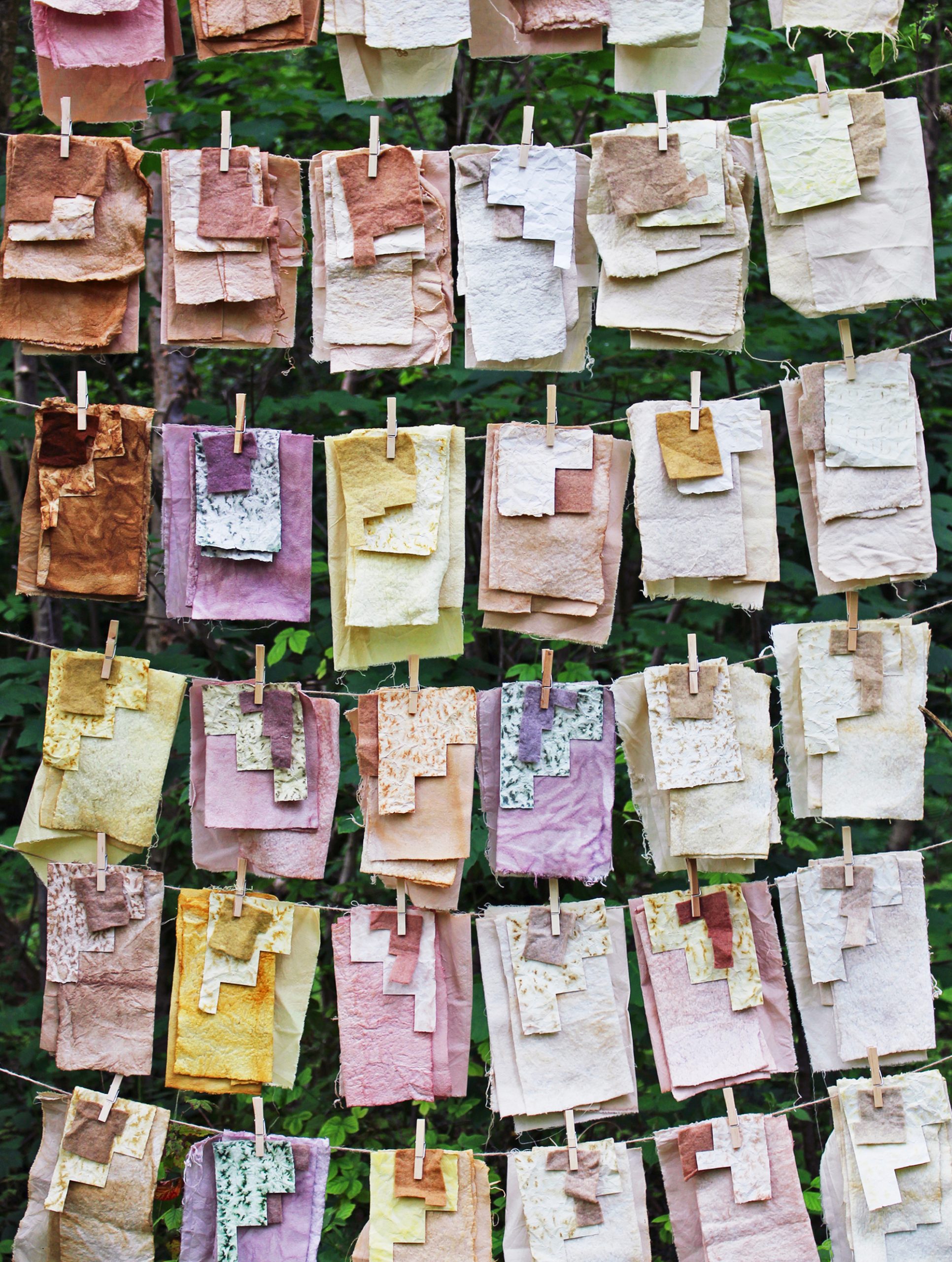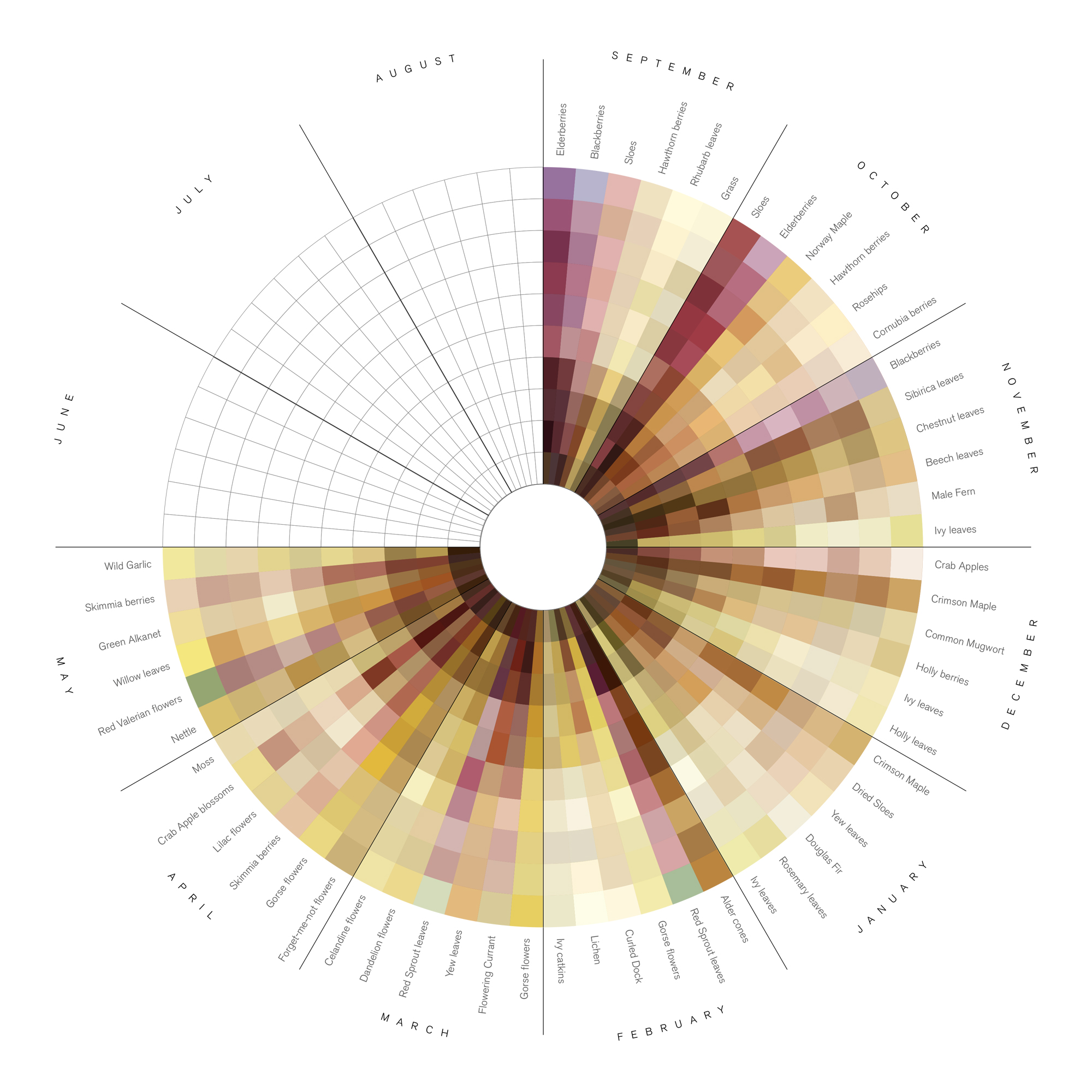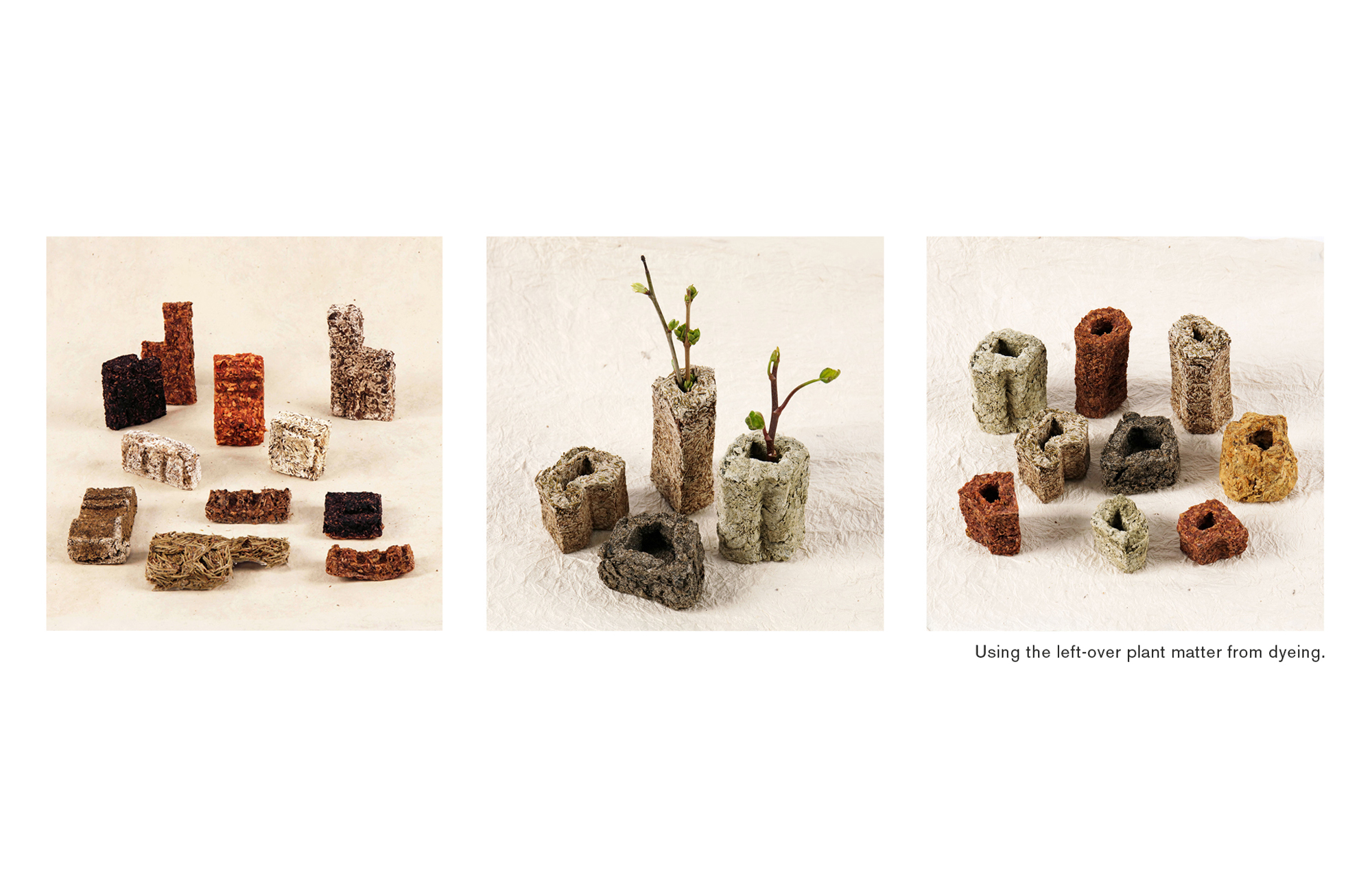Lliw Lleol

Useful information
- Team members
- Hannah Elisabeth Jones
- Country
- United Kingdom
- Keywords
- natural dyes organic colour colour cmf influencing industry influential design circular design emotional durability conscious consumption textiles database
Short Description
A database for the design industry, investigating organic colour from locally foraged plants.
Detailed Description
"Lliw Lleol (Local Colour) is a comprehensive natural dye database, investigating colours obtained from local plants. The database tracks the seasonal changes throughout each month and maps the connection to specific geographies in Hannah’s home of North Wales.
Since September 2019, Hannah has documented mordant-free colour from 54 plants and will continue foraging each month until August to collect a year’s worth of research. Hannah uses unbleached, organic materials and carefully forages a small quantity of plants that are abundant in the local area to conserve each species.
The consumer society rarely considers the origins of colour in materials. The purpose of this research is to heighten awareness of how colours and fibres are either grown naturally or chemically synthesised. Ultimately, Lliw Lleol encourages acceptance and emotional durability of mordant-free, naturally dyed materials and promotes conscious consumption, or better still, less consumption of materials altogether.
Project Details
- Does your design take social and cultural challenges and human wellbeing into consideration?
"Yes. No synthetics or mordants are involved in the Lliw Lleol material database, as these can be damaging to soil and waters. But how would mordant free materials affect skin contact? Is the industrial production of natural dyestuff even feasible for mass consumption? Also, no mordant can mean a reduction in colourfastness; but does this have to be a disadvantage?
The purpose of this database is to allow people to see how beautiful pure natural colours can be; if they are beautiful they become more desirable, helping to change people’s perceptions towards unsterile, non-colourfast materials.
Additionally, this database could highlight which plants do not need a mordant for longevity. Is it a negative to have skin contact with mordant-free materials when many plants have beneficial qualities? Ultimately, ‘Lliw Lleol’ encourages acceptance and emotional durability of naturally dyed materials, promotes the importance of nature, and consequently encourages conscious consumption, or better still, less consumption of materials altogether."
- Does your design support sustainable production, embodying circular or regenerative design practices?
"Yes. Lliw Lleol consists of purely natural fibres and organic colour, with an ethical commitment to developing an ecologically sensitive practice. Lliw Lleol encourages an understanding of each plant and respects the biodiversity of ecosystems and the unique landscape, with an aspiration of mending the soils and waters with regenerative materials rather than damaging them with synthetics.
The production of the Lliw Lleol database is responsible and considerate. Hannah forages only a small quantity of berries or leaves from areas where they are prolific, to conserve the health of each plant. All of the materials are unbleached and organic, including British wools e.g. Aran and Blue-faced Leicester. Additionally, the left-over plant matter from the dyeing process is developed into bio-material fibreboards and vessels."
- Does your design use principles of distribution and open source?
Yes. Lliw Lleol is a database of colour and material research for the benefit of design. The collection can be used for educational purposes and material consultancy to influence a new age of responsible, industrial production of textile and product design for the consumer market.
- Does your design promote awareness of responsible design and consumption?
"Yes. The consumer society rarely considers the origins of colour in materials. But Lliw Lleol encourages consumers to engage with the materials around them and consider whether they have been chemically synthesised or grown naturally, hence raising their awareness of their own consumption patterns.
If Lliw Lleol can help to encourage a paradigm shift in perceiving colour and materials as either food or poison, consumers can have more educated control over their material choices."
Images


